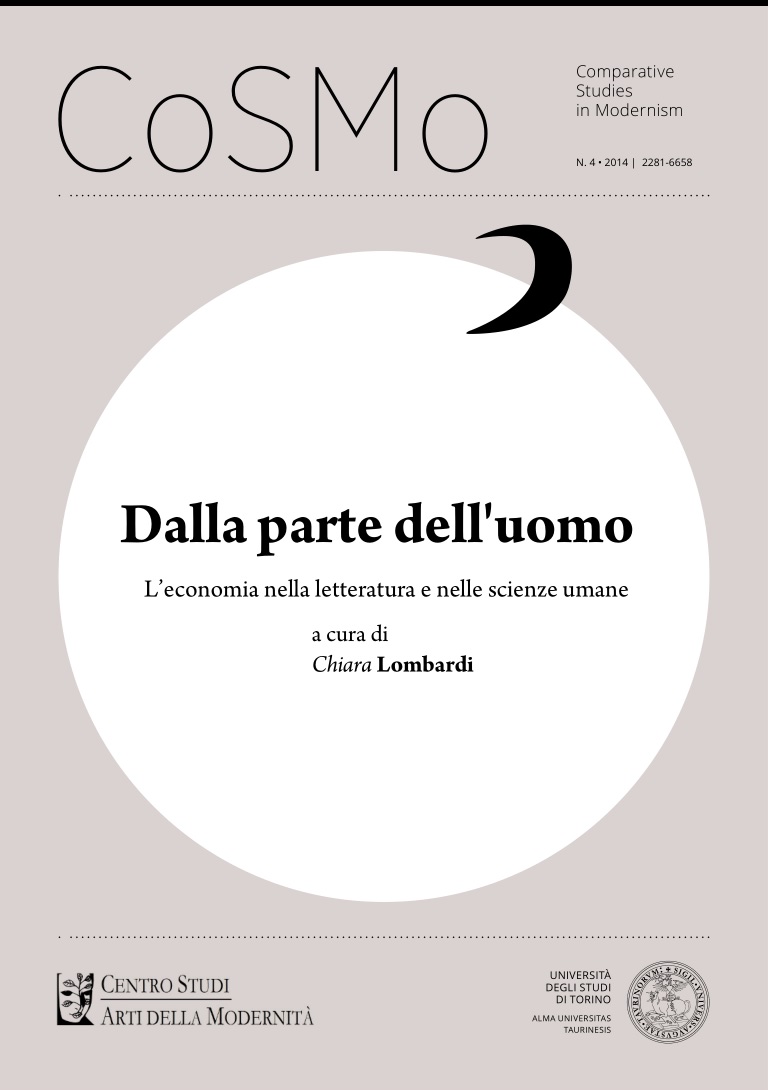Economie reali ed economie simboliche nella city comedy giacomiana
DOI:
https://doi.org/10.13135/2281-6658/587Parole chiave:
Jacobean city comedy, money, sex, marriageAbstract
This essay is focused on two samples of city comedy put on stage in the same year (1605), Eastward Ho!, written in collaboration by Ben Jonson, George Chapman, and John Marston, and A Trick to Catch the Old One, by Thomas Middleton. According to my reading, these two plays, by calling in question the traditional moral of the genre, reflect the cultural crisis and the ideological turmoils following the rise of the new mercantile economy. In Eastward Ho!, the final symbolic order is still based on moral values, but these values have now become part of the market sphere. In Middleton’s play, on the contrary, the final symbolic order is amoral, entirely compromised with the acquisitive logic, which means the impossibility of distinguishing between the market’s virtuous rules and its transgressions.
Downloads
##submission.downloads##
Pubblicato
Fascicolo
Sezione
Licenza
Gli autori mantengono i diritti sulla loro opera e cedono alla rivista il diritto di prima pubblicazione dell'opera, contemporaneamente licenziata sotto una Licenza Creative Commons - Attribuzione che permette ad altri di condividere l'opera indicando la paternità intellettuale e la prima pubblicazione su questa rivista.







